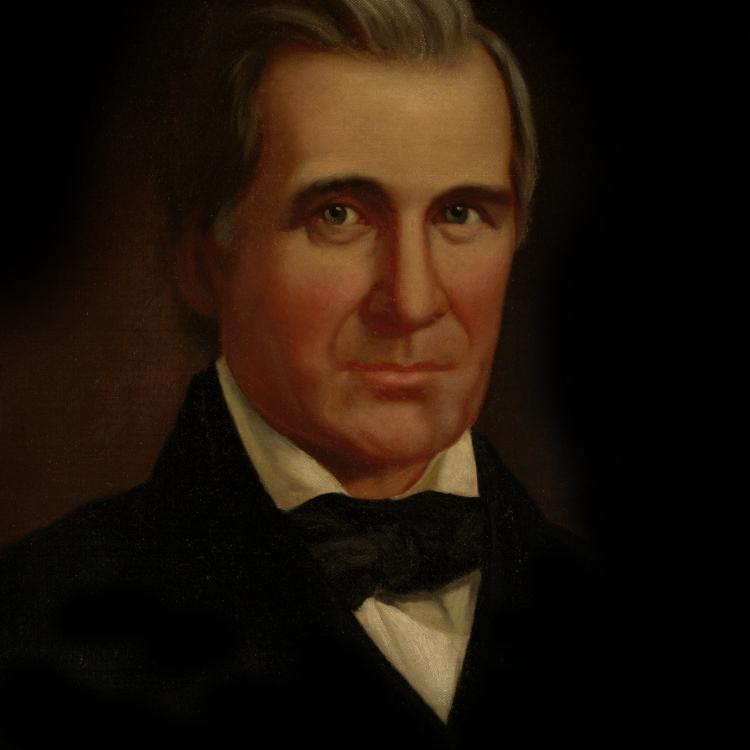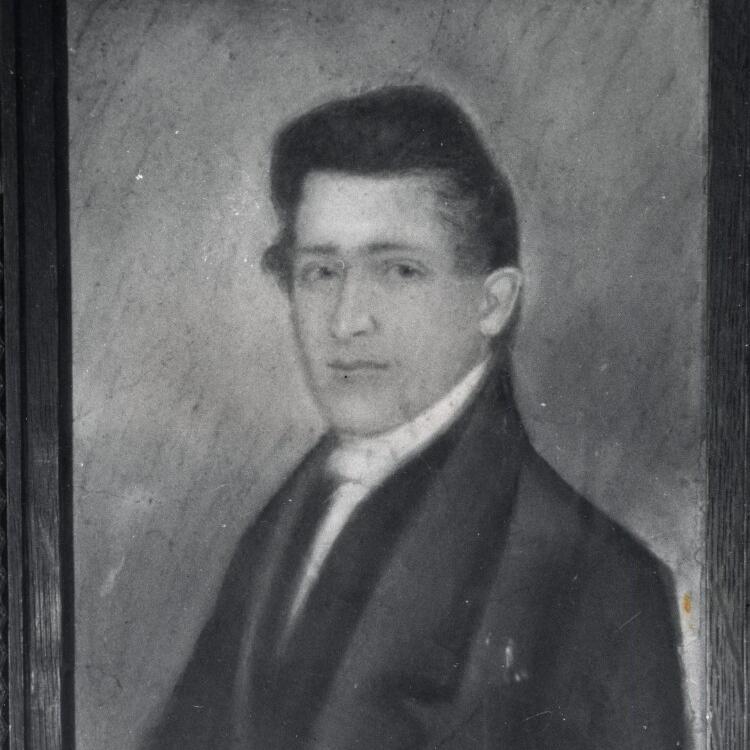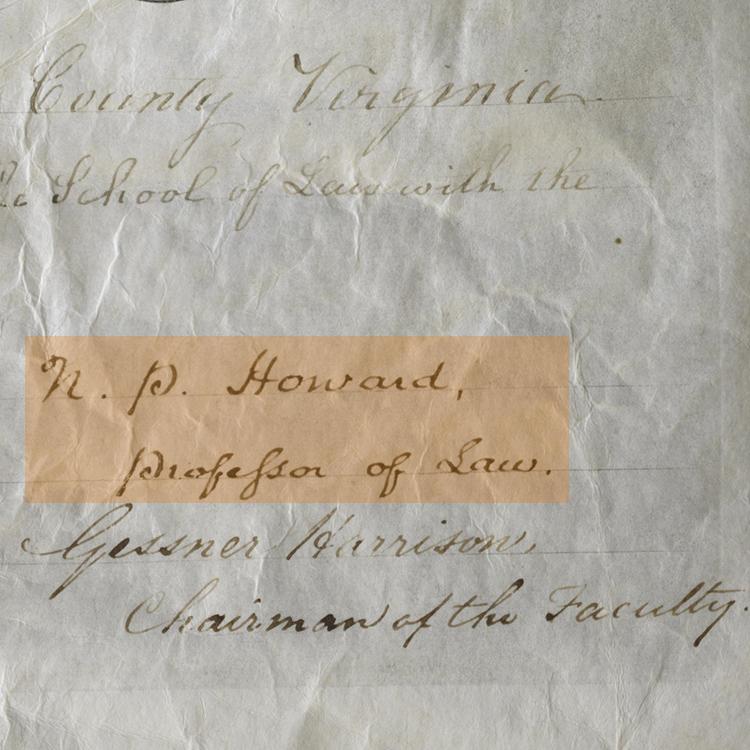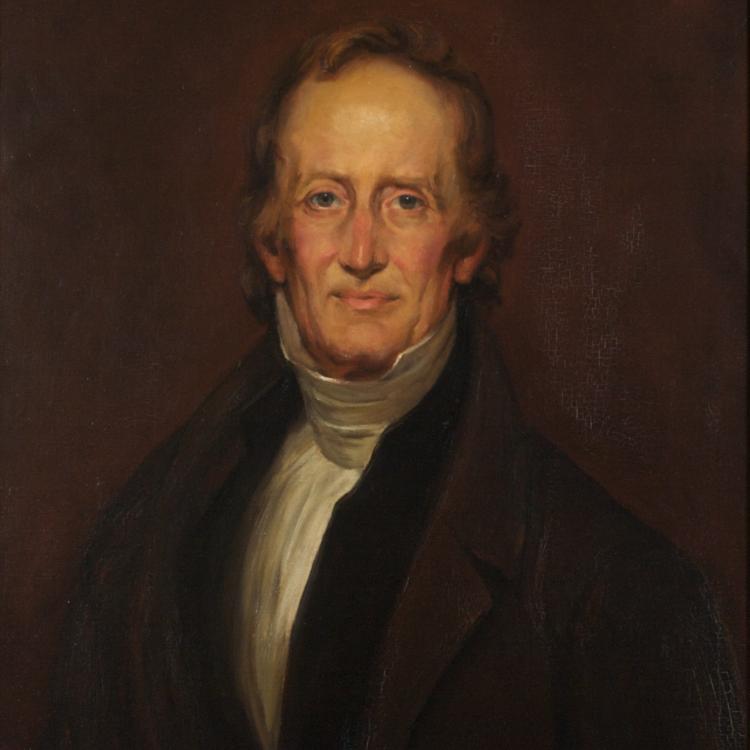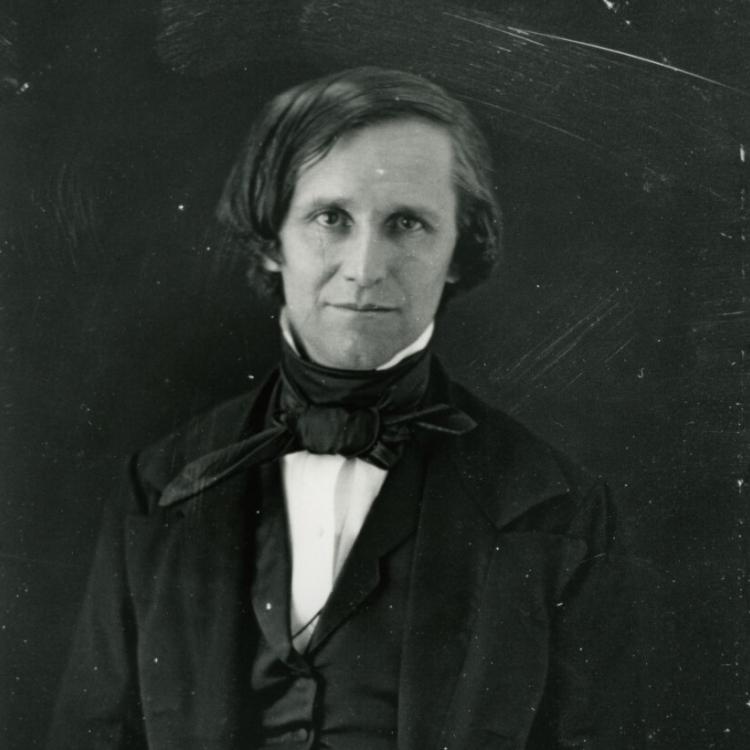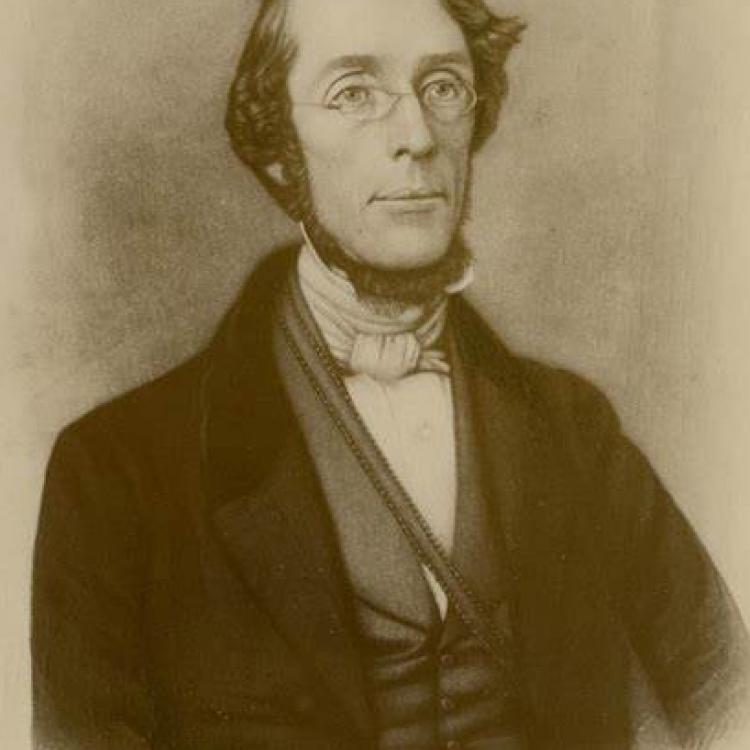Census records, student notes, personal papers, and public speeches reveal the extent of the first six UVA Law faculty members’ participation in Black bondage. Although slavery was not a formal component of the UVA Law curriculum, it pervaded instruction on topics ranging from natural law to property and contracts. All of the faculty featured here held familial ties to slavery or were themselves enslavers.
John Tayloe Lomax
1826 - 1830
As the first professor of law at the University of Virginia, John Tayloe Lomax adopted Thomas Jefferson’s view that the study of law should include an examination of government and politics within a broad conceptual framework. Lomax descended from the Tayloes, a prominent slave-holding Virginia family. According to the 1850 U.S. census, Lomax owned 7 enslaved persons in 1850.
John A. G. Davis
1830 - 1840
John Anthony Gardner Davis became the Law School’s second professor at the young age of twenty-eight. Davis lectured to his students that slavery was too engrained in the country's fabric to be eradicated and that the enslaved people in Virginia were better off enslaved than free. While a professor at the Law School, Davis reported in the 1830 U.S. Federal Census that he owned 17 enslaved persons.
Nathaniel Pope Howard
1840 - 1841
In 1840, the Board of Visitors hired Nathaniel Pope Howard as a temporary professor of law to replace the recently-deceased Davis. A native of Richmond, Howard specialized in Virginia court procedure. After leaving UVA in 1841, Howard became Clerk of the Virginia General Court and then entered private practice. Census records indicate that he enslaved at least seven people, some of whom he rented to other enslavers in Richmond.
Henry St. George Tucker
1841 - 1845
Tucker, who served as University of Virginia law professor from 1841 to 1845, entered this role after a distinguished career as a member of Congress, state senator, superior court judge, and President of the Virginia Court of Appeals. Census records show that in 1840, just before his move to Charlottesville, he enslaved 46 people.
John Barbee Minor
1845 - 1895
John Barbee Minor became UVA's professor of law in 1845 and remained so for the next 50 years. Minor became a leading legal educator in the American south. Although Minor doubted the constitutionality of secession in the 1860s, he eventually came to believe it was necessary to protect the South and its institutions, including slavery. Census records and state tax lists show Minor enslaving dozens of people while a professor at UVA.
James Philemon Holcombe
1851 - 1861
In June 1851, the faculty of the Law School was enlarged with the hiring of James P. Holcombe. Though his parents were ardently anti-slavery, Holcombe himself became the strongest support of secession among the University faculty. He used his own interpretations of moral and legal philosophy to justify the practice of slavery in the United States. Holcombe became a representative to the Confederate Congress in 1861.

